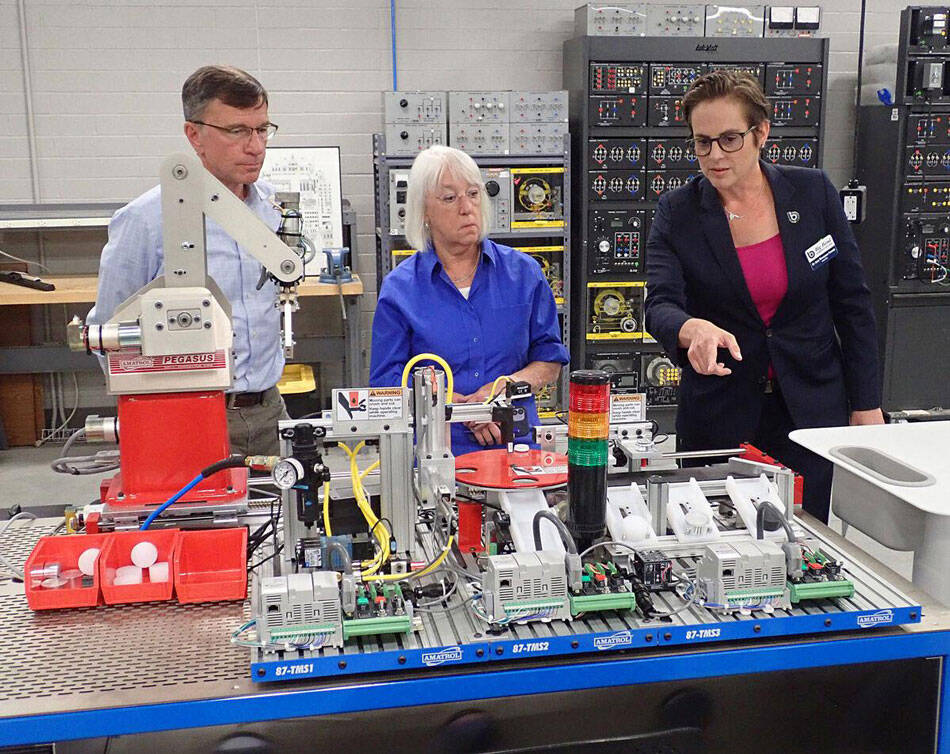By Randy Bracht | The Center Square
(The Center Square) – A measure that would waive tuition and fees for eligible students attending two-year community colleges and technical schools in the U.S. beginning next year has been reintroduced in Congress.
The bill, called “America’s College Promise Act of 2023,” was proposed on Oct. 19 by U.S. Sen. Tammy Baldwin, D-Wisc., and co-sponsored by nine fellow Democratic senators, including Patty Murray of Washington, and seven House representatives.
If enacted, the measure would establish federal grants to states with qualifying colleges and students. It proposes an initial appropriation of $98.1 million in fiscal year 2024 and increasing annually to $2.52 billion by fiscal year 2033 and beyond.
The money would be limited to paying only tuition and related fees for students attending public community colleges and technical schools operated under state control and to eligible tribal colleges or universities. The bill, which amends the Higher Education Act of 1965, would also establish a new grant program at historically black colleges and universities and minority-serving institutions by covering a “significant portion of tuition and fees” for the first two years of attendance for low-income students.
“America’s technical and community colleges give students the education and skills they need to land good-paying jobs in high-demand industries and grow our economy,” Baldwin said in a press statement. “But for too many students, the cost of a two-year degree is holding them back, hamstringing businesses who need skilled workers and preventing them from providing for their families.”
On Monday, Murray said that providing tuition-free community and technical college would be “a huge first step towards making college more affordable and expanding opportunity for everyone. When we invest in education and skills training, we are investing in a stronger economy for everyone.”
No more than 5% of grant awards could be used for administrative purposes, and the funds are intended to supplement – not replace – other federal, state, tribal or local funding. No monies could be used for recruitment or to fund endowments, athletics, “sectarian” instruction or religious worship.
Eligible students can be of any age but must be identified as low income and attending at least half-time at a qualifying school for not more than six semesters.
Federal grant funding to states would be fully awarded for years 2024-25, but drop 5% annually to 80% by years 2028-29 and beyond.
Within three years, states seeking grant funding must submit plans developed with two-year colleges and tech schools ensuring their associate degrees are fully transferable to related baccalaureate programs at public four-year institutions. Annual reports to the U.S. Department of Education would also be required.
Sponsors say the proposed legislation is supported by the American Federation of Teachers; AFL-CIO; Association of Community College Trustees; The Education Trust; The Hope Center at Temple University; The National Education Association; The Century Foundation Higher Education Team; Higher Learning Advocates; the Center for Law and Social Policy, Asian Pacific Islander American Scholars, American Association of Community Colleges, Young Invincibles and Jobs for the Future.
According to the Community College Research Center, about 5.7 million students were enrolled in community colleges in the fall of 2021, representing about 36% of all undergraduate students in the United States. The COVID-19 pandemic led to steep enrollment drops initially, but enrollment “seems to be stabilizing,” the CCRC indicated, as schools returned to in-person instruction.






